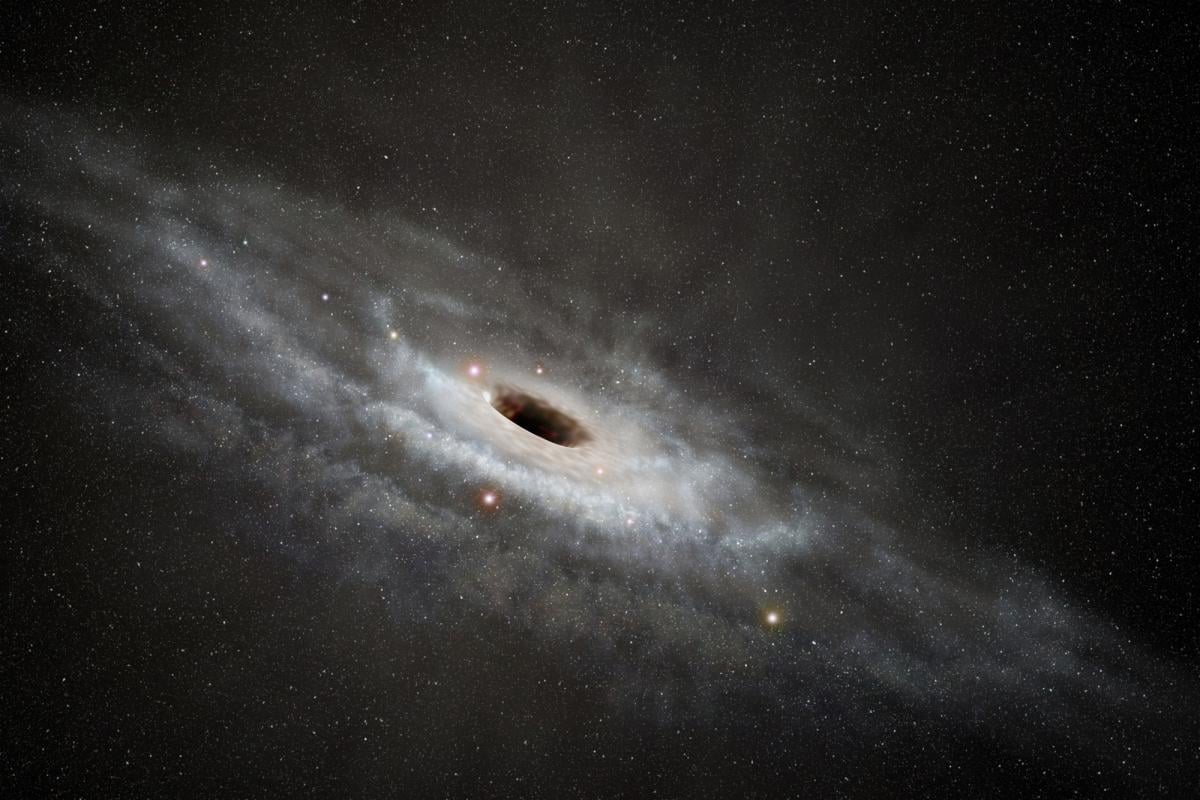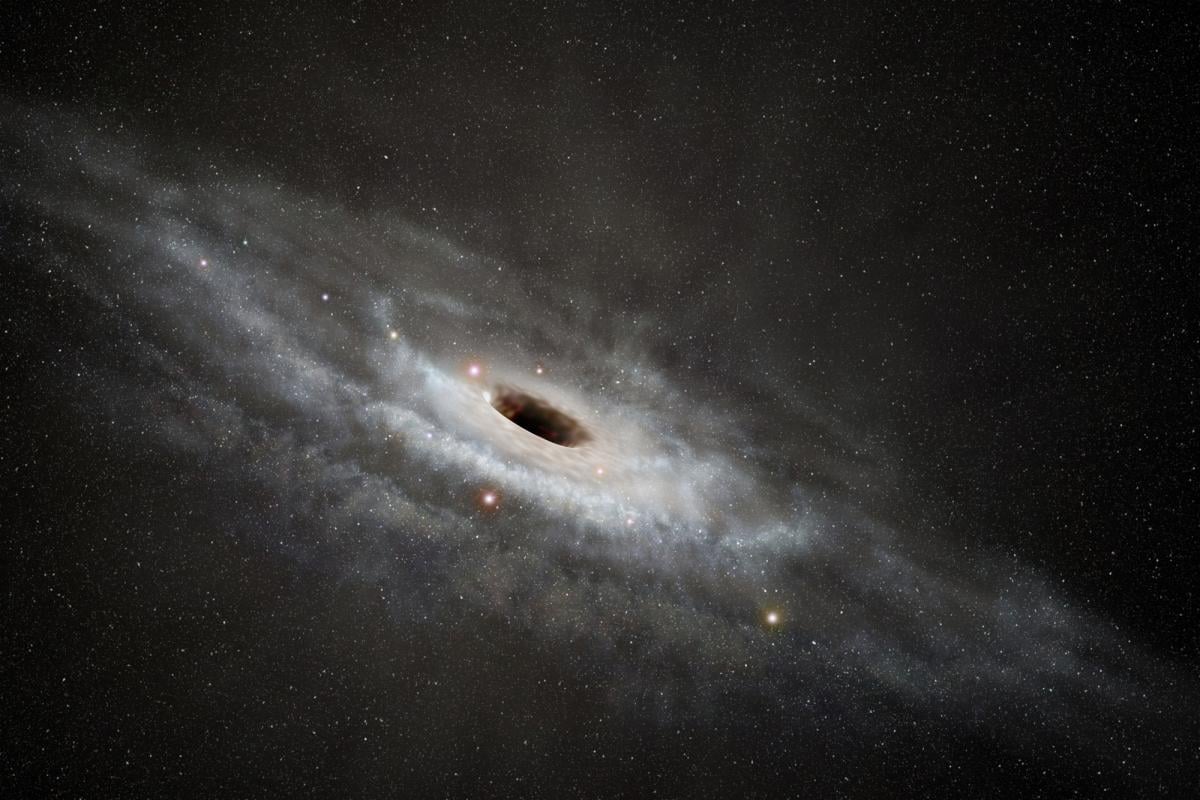“According to researchers, the latest discovery of black holes further advances human understanding of the universe.”, — write: www.unian.ua
According to researchers, the latest discovery of black holes further advances human understanding of the universe.
 Because of this, the galaxy is in a fading state / photo ua.depositphotos.comAstronomers observed how a huge black hole “starves” its galaxy. An international team led by the University of Cambridge using the James Webb Space Telescope has confirmed that a galaxy the size of ours can no longer form new stars because the black hole is sucking up the necessary fuel, writes The Independent.
Because of this, the galaxy is in a fading state / photo ua.depositphotos.comAstronomers observed how a huge black hole “starves” its galaxy. An international team led by the University of Cambridge using the James Webb Space Telescope has confirmed that a galaxy the size of ours can no longer form new stars because the black hole is sucking up the necessary fuel, writes The Independent.GS-10578, also known as the Pablo Galaxy, is said to have formed about two billion years after the Big Bang, but is effectively dead due to its inability to form new stars. Astronomers have watched the black hole expel large volumes of gas from the galaxy at a rate faster than what is needed to form new stars.
“We found the culprit: the black hole is killing this galaxy and keeping it quiescent by cutting off the source of the ‘food’ the galaxy needs to form new stars. Based on previous observations, we knew this galaxy was in a dying state: it wasn’t forming many stars , given its size, and we expect that there is a connection between the black hole and the end of star formation. However, until Webb, we could not study this galaxy in sufficient detail to confirm this connection, and we did not know whether this hardened state temporary or permanent,” explained Dr. Francesco D’Eugenio of the Cambridge Kavli Institute of Cosmology.
Meanwhile, scientists at the University of Texas at Austin observed with the Webb Telescope, which began operating in July 2022, and saw that black holes make them appear much larger and brighter than they actually are.
According to researchers, the latest discovery of black holes further advances human understanding of the universe at a fundamental level.
“We knew that black holes have a huge effect on galaxies, and perhaps often stop star formation, but until Webb we couldn’t directly confirm this. This is another way to prove that ‘Webb’ is a giant leap forward in terms of our ability to to study the early universe and how it evolved,” emphasized Professor Roberto Maiolino from the Institute of Cosmology named after Kavli
It is noted that the astronomers’ observations were described in detail in the journal Nature Astronomy in a study called “A rapidly rotating galaxy after a star explosion quenched by the feedback of a supermassive black hole at z=3”.
Space exploration – the latest newsAs UNIAN wrote, a world was found near Saturn where life could potentially exist. In particular, the satellite of the planet Enceladus contains more complex organic molecules than previously thought.
It also became known that the Earth will have another satellite at the end of September, it will be a small asteroid 2024 PT5, moving along a trajectory in which it will be temporarily captured by the Earth’s gravity.
You may also be interested in news:
- A ‘potentially dangerous’ asteroid the size of a skyscraper will soon fly past Earth
- SpaceX’s historic Polaris Dawn space flight has ended
- A long-lost moon may explain Mars’ strange shape and extreme topography, study finds
